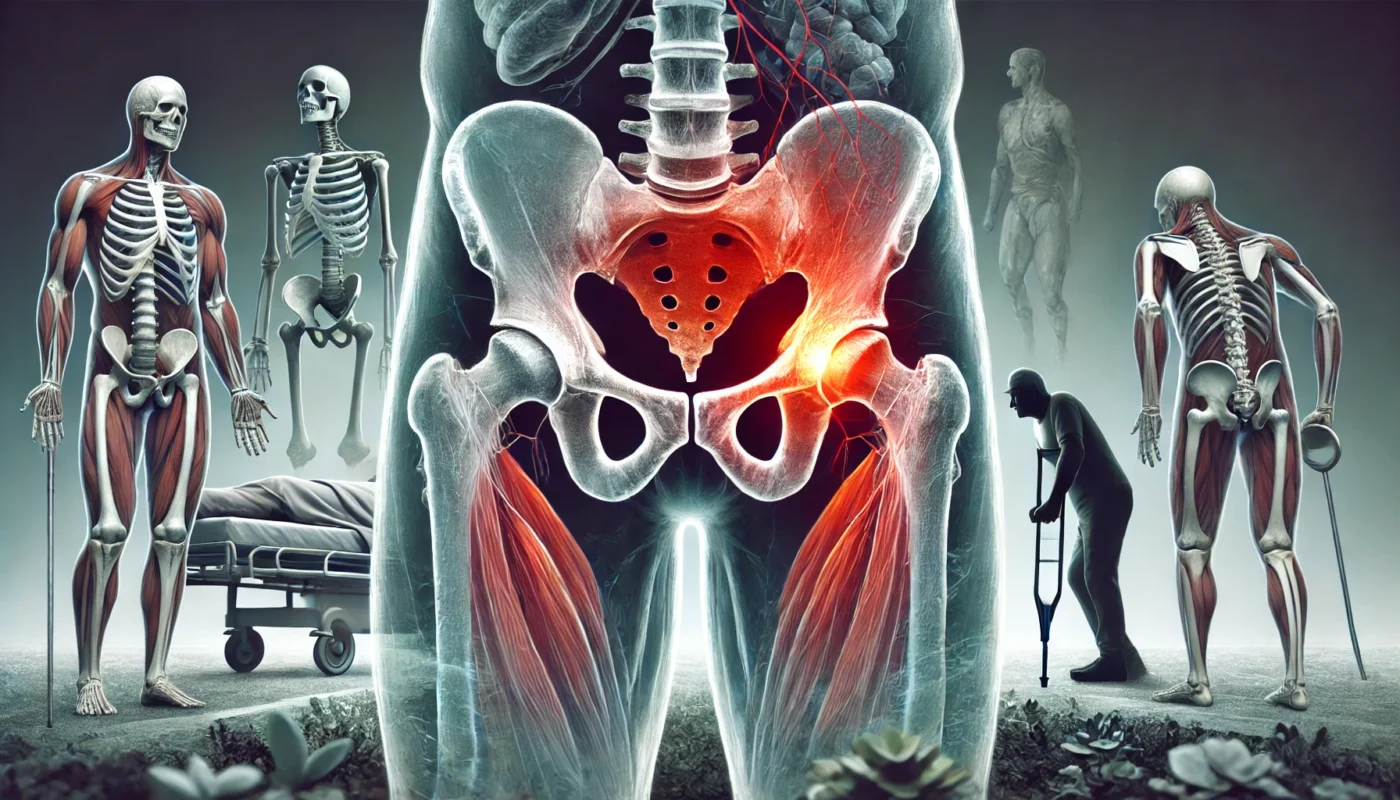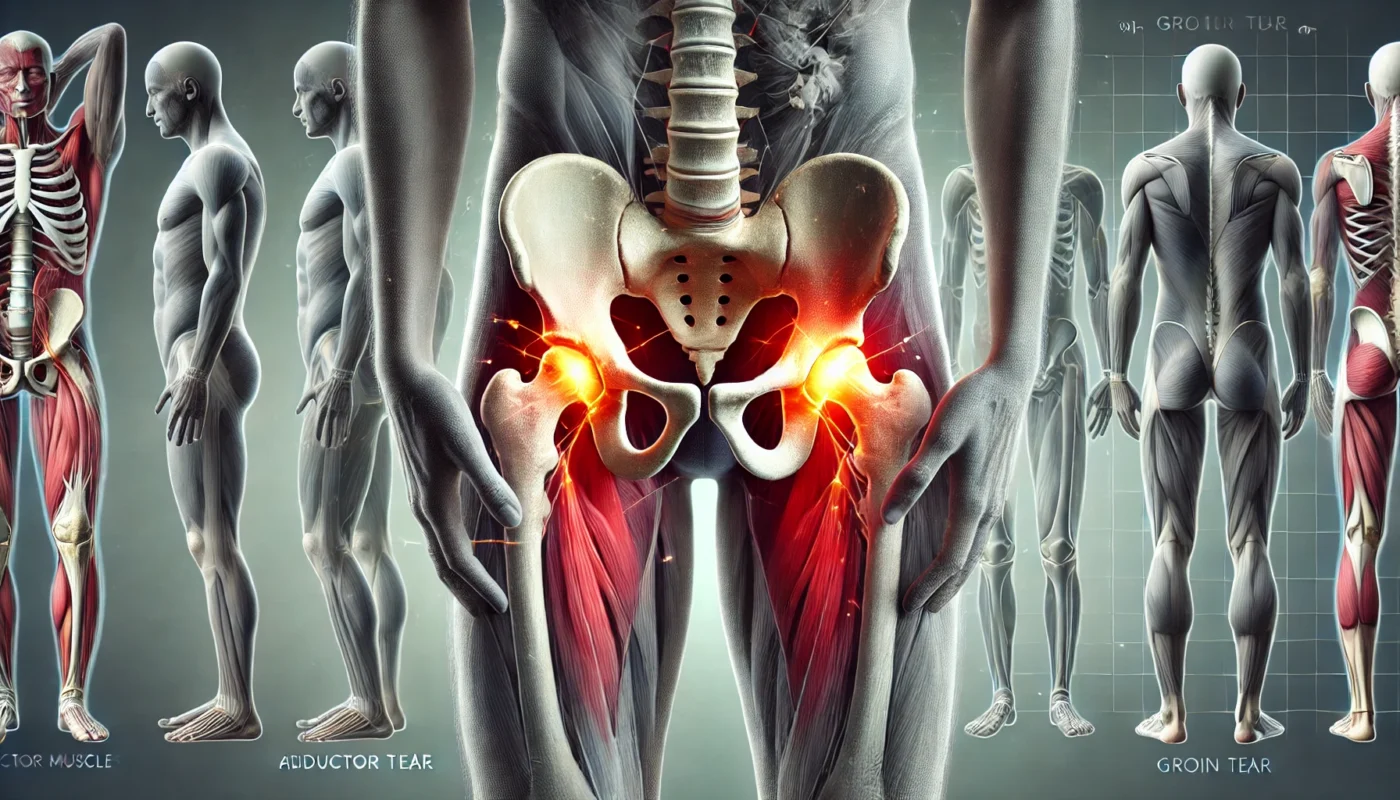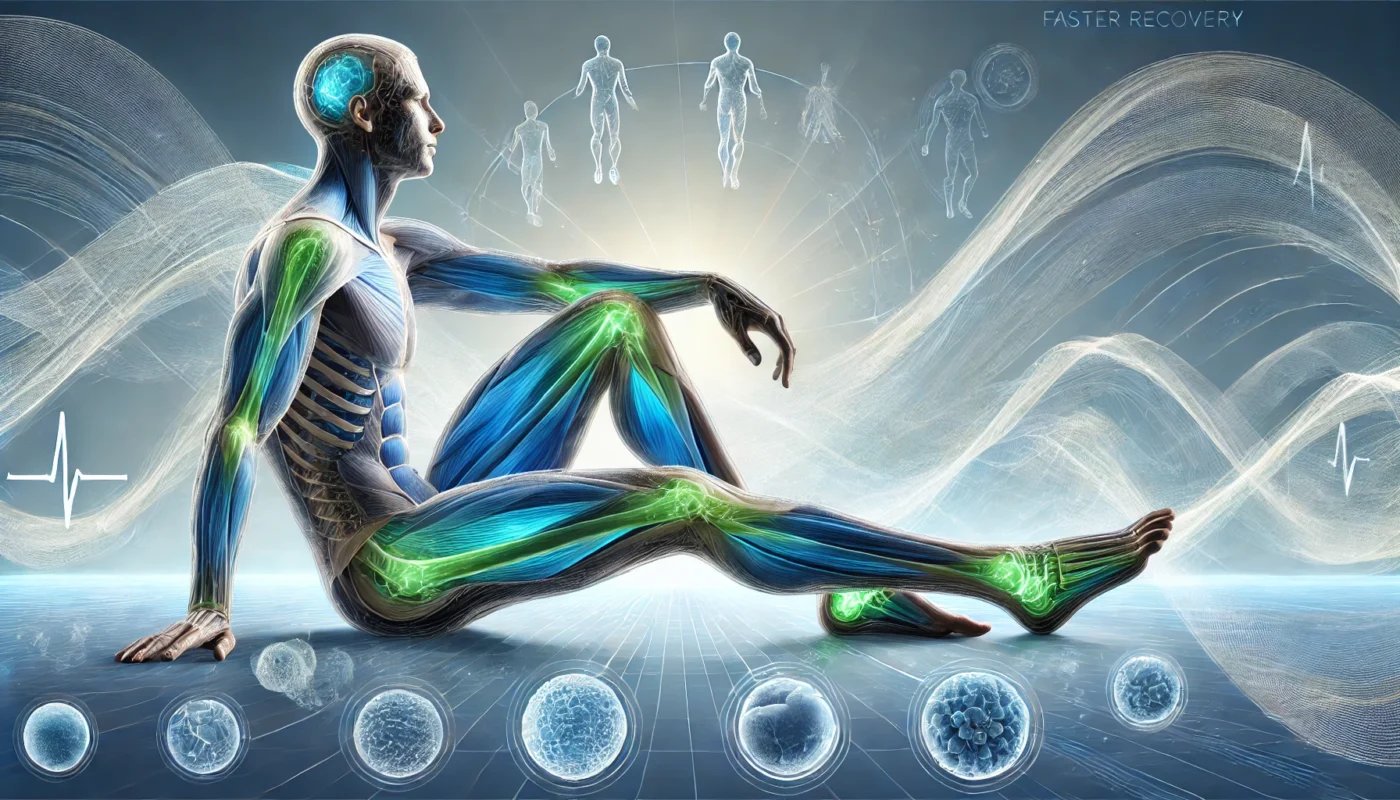Groin strain surgery is a specialized medical intervention aimed at repairing severe muscle or tendon damage in the groin region, typically caused by acute injury or chronic overuse. While non-surgical treatments such as rest, physical therapy, and anti-inflammatory medications are sufficient for most groin injuries, surgery becomes necessary when there is significant structural damage, such […]
Tag Archives: muscle repair
A groin tear, or adductor strain, occurs when the muscles located in the inner thigh (adductors) are overstretched or torn. This injury is common in athletes and individuals engaging in activities requiring sudden changes in direction, kicking, or intense physical effort. Groin tears can vary in severity, from mild discomfort to complete muscle rupture, significantly […]
Muscle soreness is a common aftermath of an intense workout or physical exertion. It’s a sign that your muscles are adapting and growing stronger. But when the aches linger, they can hinder your daily activities and workout routine.
Over-the-counter pain relievers like Tylenol are often reached for to ease the discomfort. But how effective is Tylenol for muscle recovery? And how does it compare to other pain relievers like ibuprofen?
This article aims to answer these questions. We’ll delve into the science behind muscle soreness and recovery, and the role of pain relievers in this process. We’ll explore the mechanisms of action of Tylenol and ibuprofen, and provide practical tips on their use for muscle soreness.
We’ll also look at alternative approaches to managing muscle soreness, including natural remedies and non-pharmacological therapies. We’ll discuss the importance of rest, nutrition, and hydration in recovery, and provide strategies to prevent muscle soreness.
Finally, we’ll guide you on how to understand and interpret research on muscle recovery. Our goal is to provide a comprehensive guide to understanding and managing muscle soreness, whether you’re a fitness enthusiast, a health enthusiast, or a medical patient.
So, let’s dive in and unravel the role of Tylenol in muscle recovery.
Recovery from athletic injuries is a critical aspect of sports performance and overall well-being. In the pursuit of faster recovery times and reduced inflammation, magnesium glycinate—a highly bioavailable form of magnesium—has gained attention as a potential aid. This article explores the mechanisms by which magnesium glycinate supports athletic recovery, including its roles in muscle repair, […]
Endurance athletes, particularly marathon runners, place immense physical demands on their bodies. The strain from prolonged exertion can lead to muscle damage, immune suppression, and oxidative stress, all of which require effective recovery strategies to mitigate. While nutrition and rest are crucial for post-marathon recovery, targeted supplementation can offer additional support. Zinc picolinate, a highly […]
Protein is a vital nutrient, playing a key role in virtually every biological process in our bodies. But does protein cause inflammation? This question has sparked much debate among health enthusiasts, fitness buffs, and medical patients alike.
Inflammation is a natural response of our immune system. It helps protect our bodies from harm, but when it becomes chronic, it can lead to various health issues. Understanding the link between protein and inflammation is crucial for managing our health and wellbeing.
The type, quantity, and quality of protein we consume can influence our body’s inflammatory response. However, the relationship between protein and inflammation is complex and multifaceted. It’s not as simple as saying protein causes inflammation or it doesn’t.
This article aims to explore this intricate relationship. We’ll delve into the science behind protein and inflammation, debunking myths and providing evidence-based information. We’ll also discuss how different types of protein may affect inflammation and how to balance protein consumption for optimal health.
Whether you’re a fitness enthusiast seeking to optimize your recovery, a health enthusiast aiming to understand complex health information, or a medical patient looking for practical tips to manage your health condition, this article is for you. Let’s embark on this journey to better understand the link between protein and inflammation.






